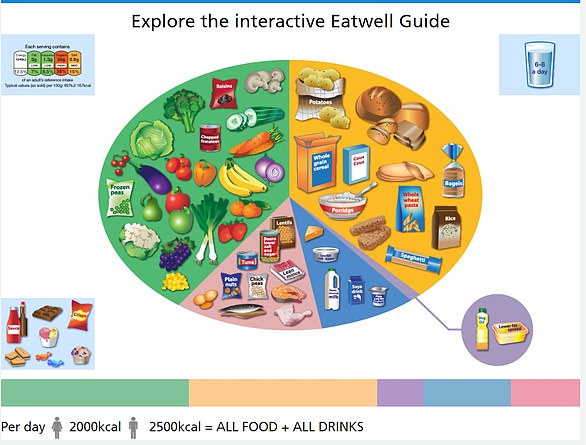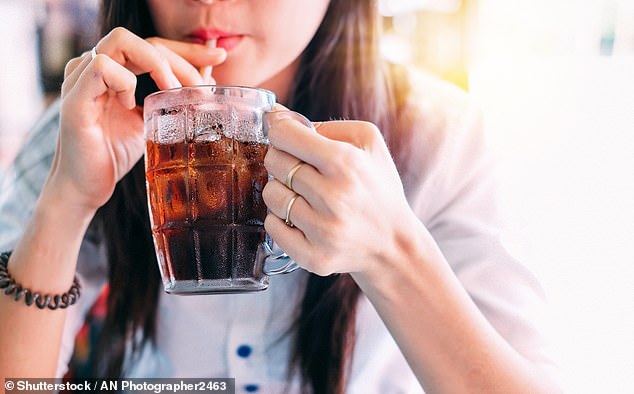



A study has found that the tax on sugary drinks has caused people to eat and drink significantly less sugar.
A year after the controversial levy raised the price of sweet drinks, Children consumed 4.8 grams less sugar per day, while adults’ intake was 10.9 grams lower.
The largest part of this decrease is due to the reduction of sugar in soft drinks. Children get 3 grams less sugar per day and adults 5 grams less.
Yet, overall, people still eat too much sugar and fail to meet UK and World Health Organization (WHO) guidelines.

Experts estimate that the sugar tax on soft drinks, introduced in 2018, has reduced the number of people under 18 who need to have a tooth pulled due to decay by 12 percent (Stock Image)

Sugary drinks account for about 30 percent of added sugars in the diets of children ages one to three and more than half for older teens (File photo)
In April 2018, the government introduced a two-tier sugar tax on soft drinks to protect children from excessive sugar consumption and to tackle childhood obesity.
It added 24p per litre to drinks with the highest sugar content and 18p per litre to those with the lower content. Sugar-free and ‘diet’ drinks were not affected, nor were unsweetened juices.
The type of sugars that most adults and children in the UK eat too much of are known as ‘free sugars’.
Soft drinks are a major source of sugar, but other foods that have added free sugars include biscuits, chocolate, flavoured yoghurts and breakfast cereals.
Sugar in honey, syrups, fruit juices, vegetable juices and smoothies occurs naturally, but is also considered free sugars.

People in the UK drink an average of almost four and a half sugary drinks a week, including fizzy cola, lemonade, energy drinks and fruit-flavoured drinks, based on the most recent available data for 2018 (shown in the graph). Our total was also much higher than the 2.8 drinks recorded in France, 2.7 in Germany and 3.1 drinks a week in Australia.
Previous research has shown that sugary drinks are linked to obesity, type 2 diabetes, heart disease and premature death.
For the new study, published in the Journal of Epidemiology and Community Health, experts from the University of Cambridge and University College London, among others, looked at data from 2008 to 2019 to examine sugar trends over time.
A total of 7,999 adults and 7,656 children were included in the final analysis.
The experts found that sugar consumption fell after the tax was introduced and concluded that this ‘led to a significant reduction in the consumption of free sugars in children and adults’.
They said that the amount of energy people got from free sugar as a percentage of total energy did not change. This indicates that the number of calories from free sugar decreased while at the same time total calorie intake decreased.
They said that for children, a daily reduction of 4.8 grams of sugar is equivalent to about 19.2 calories out of a daily intake of about 2,000 calories. This equates to about a one percent reduction in energy intake.
Although the evidence showed that sugar intake from sweetened drinks fell as a result of the controversial UK tax, it was not clear whether people had switched to other, untaxed sources of sugar.
The largest contributor to free sugars in children aged 4 to 10 years is breakfast cereals and grain products, followed by soft drinks and fruit juices.
In the age group 11 to 18, soft drinks are the largest source of alcohol consumption (29 percent).
For adults, sugar, canned goods and sweets are the biggest sources of free sugars, followed by non-alcoholic beverages.
The decrease in free sugar consumption observed across the diet, and not just soft drinks, suggests that free sugar consumption from food has been declining since 2008. The researchers say this may be due to the signals sent to public health following the announcement.



